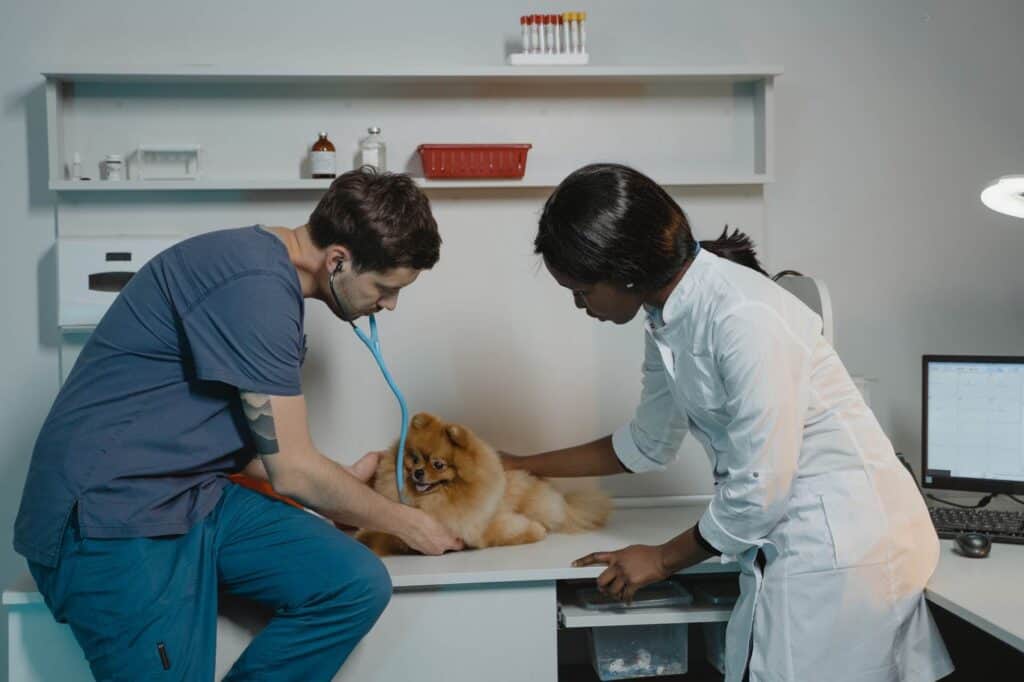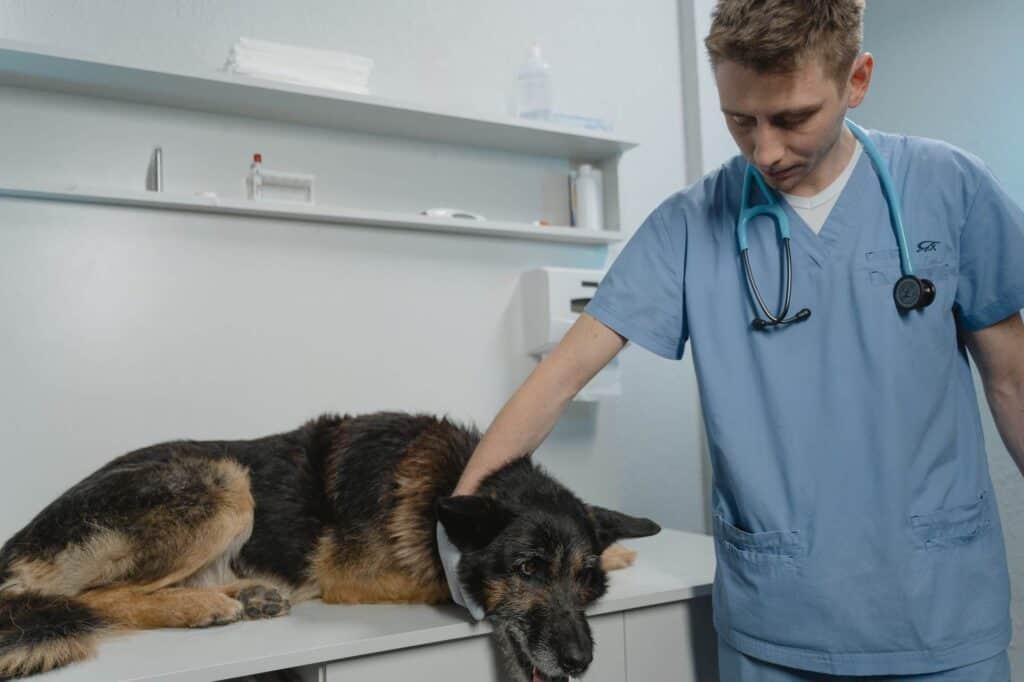Being a dog owner also comes with the responsibility of ensuring your pet’s health care. With medical exams and vaccinations, you may be wondering, how often should I take my dog to the vet? We’re going to discuss the frequency of veterinary visits to prolong your beloved dog’s life.
How Often Should I Take My Dog to the Vet?
To guarantee optimum wellness, you should take your adult dog to a veterinarian once a year. Meanwhile, puppies require several visits per year due to vaccination, while senior dogs may need semi-annual vet checkups. However, vet visits may still vary on your pet’s condition and medical needs.
Like humans, dogs also need routine medical checkups to monitor growth and prevent potential medical problems. In this way, a vet can provide the best healthcare plan for your pet.
Annual Wellness Exams for Dogs
It’s ideal to take your dog to the vet once a year for a complete physical checkup to see your pet’s development and health status. This is also your chance to consult the vet about any concerns relating to physical health and behavior.
During your visit, a veterinarian will perform routine checks in various parts of a dog’s body, including internal organs. In this way, a vet can determine the appropriate nutrition, exercise, and medication for your pet. A full body checkup generally covers:
- Eye condition
- Weight and muscle density
- Haircoat dryness, shedding, and fleas
- Lumps or bumps in the skin
- Ear and nasal discharge
- Symmetry in the face
- Salivation, periodontal disease, tartar buildup
- Heart rate and rhythm
- Increased or decreased breath sounds
- Swelling lymph nodes
- Nerve and muscle problems in the legs
- Abnormality in the abdomen, liver, kidneys, intestines, and bladder
A checkup doesn’t automatically mean there’s something wrong with your furry friend. Instead, exams are part of preventative care so that you can make better choices in caring for your pet and save money on medical treatments.
Schedule of Veterinary Checkups for Puppies
Having a puppy means frequent vet visits. In some cases, it can be monthly for the first six months due to vaccinations. This is because puppyhood is a crucial time for your pet’s growth and development.
Puppies aged 10 to 16 weeks old typically need vaccine or immunization shots for distemper, hepatitis, parvovirus, parainfluenza, kennel cough, Lyme disease, and leptospirosis. At sixteen weeks, you need to return to the vet clinic for your pet’s first rabies shot.
When your puppy reaches 6 to 9 months, you can also go to the vet for neutering or spaying. During these consultations, a veterinarian will check your puppy’s skin and body parts to look for possible medical complications.
Adult Dog Vet Checkups
You can stick to a yearly vet visit if your dog is between 1 to 8 years old (for most breeds), especially if there are no medical ailments. However, it’s still best to bring your pooch to the clinic to get booster shots for rabies, distemper, parvovirus, parainfluenza, and hepatitis.
At the adult stage, dogs tend to eat more, so you also have to monitor your pet’s dental health. Keep in mind that bacteria in the teeth can cause infection in other organs.
Additionally, you can discuss diet changes if your dog is overweight. The same applies if your pet has behavioral issues and you need a recommendation for training. During these visits, your vet will set the next appointment date, especially if your dog requires further tests or medication.
Veterinary Visits for Senior Dogs
Some older dogs would have difficulty moving, eating, and even remembering commands at certain points in their lives. To check for potential ailments and avoid substantial medical bills, try to bring your senior dogs to the vet at least every six months.
About 45% of American owners pay the same amount or more for their pets’ medical needs. As dogs grow old, some of them may experience health problems and they start to yelp. Thus, there’s a possibility for you to spend more money on treatment and medication.
Semi-annual checkups allow your vet to make diagnostic tests for your dog’s blood, urine, kidney, liver, thyroid hormone, heart, bones, and other internal organs. In this way, you can catch changes in your pet’s health and take preventative measures.
When to Take Your Dog to the Vet Right Away
Over 90% of owners take their dogs to the vet at any time, yet only 40% of dog owners set an annual vet visit. However, there are situations that call for more frequent vet visits, especially for medical emergencies.
Even when it’s not your dog’s scheduled exam, it’s best to take your pet to the clinic if you’re noticing these issues.
- Indigestion of something toxic, like chocolate, rat poison, or household cleaner
- Pale gums
- Disorientedness
- Hard, swollen abdomen
- Broken bones
- Getting hit by a large or blunt object
- Unconscious and not waking up
- Seizures
- Difficulty in breathing
- Diarrhea or vomiting for more than 1 day
- Extreme whining or shaking
- Lethargy
Related Questions
Does Pet Insurance Cover Routine Checkups?
This depends on your pet’s insurance policy. However, it’s common for pet health insurance plans to cover wellness and routine veterinary visits. Some insurance providers also offer coverage for preventative care and medical treatments.
Is It Bad Not to Take Your Dog to the Vet?
If your dog is unwell for a long time, it will be bad not to take your pet to the vet. Besides, some states have strict animal cruelty laws that cover abuse, neglect, and even sheer ignorance.
How Do I Get My Dog to Like the Vet?
Make your dog comfortable with the vet by training it to get used to being handled by other people. Then, use positive reinforcement for good behavior by giving treats. Also, be calm and relaxed at the clinic so your pet can see that it’s a safe place.
Conclusion
Take adult dogs to the vet at least once a year, while senior dogs can go every 6 months. A puppy’s appointment depends on the necessary vaccination. After finding a veterinarian that provides for your pet’s needs, it will be easier to do yearly checkups to keep your dog healthy.



